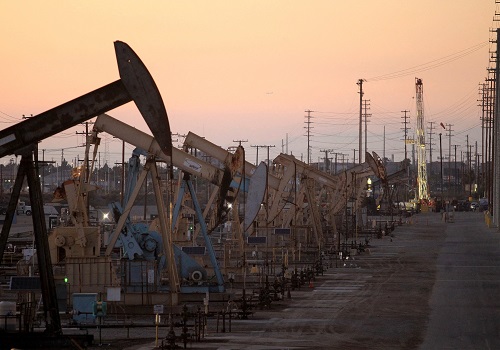US Oil drilling costs to reach $67 -$70 per barrel by 2026 - Ventura Securities

According to a report by Ventura Securities, the Trump Presidency could have a significant impact on the oil market, with potential growth largely dictated by price. The administration's push for increased US oil production through aggressive drilling policies may lead to shifts in global supply dynamics. Trade tensions, particularly tariffs, could introduce new uncertainties, affecting crude prices and US export competitiveness. The geopolitical landscape, including Middle East tensions and sanctions on countries like Iran, could further influence oil prices. These factors together will play a crucial role in shaping the global oil market's trajectory under Trump's leadership.
Upside Potential
The report highlights that additional US oil production means a well drilling cost requirement of $64 per barrel. Hence, the degree of "Drilling" would be muted. Going forward, in a couple of years, these costs could scale up to $67 and $70 range as per the forward prices. In 2018, there was a significant fall in Iranian oil exports due to the re-imposing of sanctions against Iran. If there is a resurgence of such sanctions, we could witness a potential loss of supply from the oil market, an upside price risk erasing surplus expectations. At present, sanctions have not been strictly enforced, and Iran has been able to increase exports significantly. The outcome of this would be a pressure on OPEC+ to increase output. The current market prices stand at CMP WTI Crude at $70, Brent at $74, and MCX November Futures at Rs. 6,024.
Bearish Impact
The report suggests that under the Trump Presidency, there is a potential to see more US production on account of the approach and insistence on "More drilling" and trade policies. Trade uncertainty and frictions remain a headwind to crude prices, specifically when it comes to US energy prices. There are likely retaliatory effects against US exports due to US import trade tariffs.
A noteworthy reminiscence is of China in 2018, which was reluctant to purchase US Crude Oil, resulting in a widening of the discount between Crude and Brent. Thus, the WTI-Brent spread could come under pressure. The impact might be lesser now compared to 2018, as China’s imports were almost 25% of US exports, which is now slashed to 7% dependence. The Trump regime may also bring comfort to the oil industry to invest in pipeline infrastructure, thereby increasing crude oil output.
Furthermore, Trump's propaganda on wars and conflicts is intriguing. The geopolitical conflict management of the Russia/Ukraine war, Middle East conflicts, and sanctions against Russia is to be examined. In the event of Europe increasing its dependence on Russian fossil fuels, the US oil and gas industry, a key beneficiary, would take a hit from Europe’s trade adjustments. Any peace deal would remove the geopolitical risk in energy prices. Peace attempts in the Middle East (with a supportive stand with Israel and/or an aggressive stance with Iran) could put pressure on other Gulf countries. Attempts at de-escalations would take away a large premium in oil.
Above views are of the author and not of the website kindly read disclaimer























